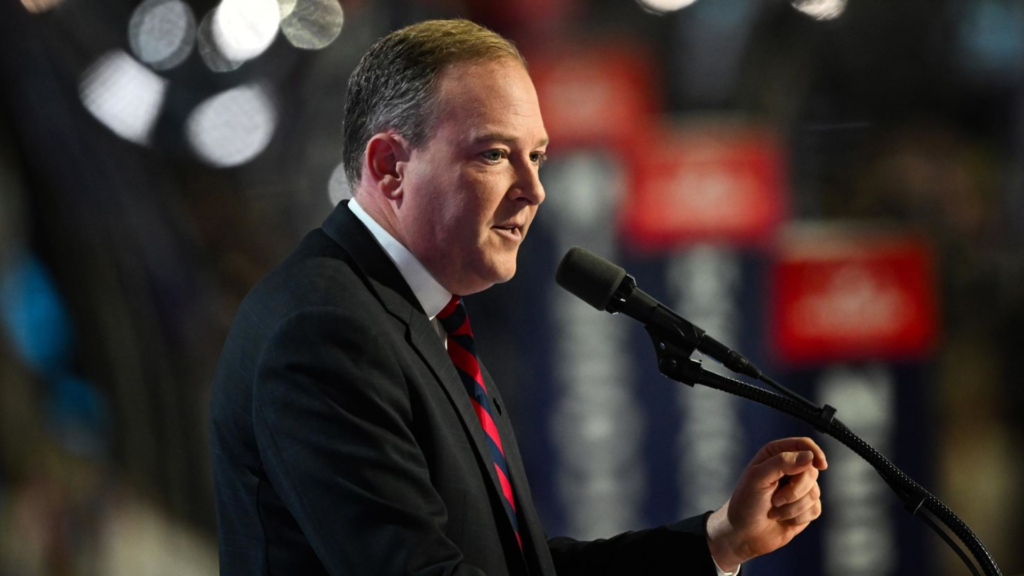Advocating for the HVAC industry in D.C. with Chris Czarnecki
Notes on HVAC legislation, the IRA, and what else is bubbling in D.C.

❝
These are big changes that will have an impact and force contractors to operate differently. But our take is that these changes are coming and we have to help contractors to the best of our abilities, and that’s what we’re focused on.
Chris Czarnecki is the Manager of Government Relations at ACCA. He works to advance the interests of ACCA’s members in D.C. each and every day.
We talked about the reasons behind HVAC legislation, the IRA, what else is bubbling in D.C., and more. Our conversation’s been lightly edited for brevity and clarity.
You represent the HVAC industry on Capitol Hill. How’d that happen?
I was born and raised in Wisconsin and studied political science and history. In school, I had a couple of internships with members of Congress; I really enjoyed both of those. When I was graduating, an opportunity came up to work in Congressman Jim Sensenbrenner’s office — he was from the 5th district of Wisconsin.
He was retiring, and one of his former staffers was with ACCA at the time, and he brought me on board and I’ve been working with ACCA ever since.
What are the reasons behind the two big pieces of residential-focused HVAC legislation — the IRA and the AIM Act?
So the AIM Act mandates an 85% reduction in the production and consumption of HFCs. The reason it was introduced is because HFCs have a very high global warming potential (GWP) and they’re looking to phase those out. Our main priority throughout it is a safe transition for contractors and consumers alike as the industry transitions to lower GWP refrigerants such as mildly flammable A2Ls and flammable A3s.
The IRA as a whole is focused on reducing emissions and fighting climate change. The aim of these rebates (and tax credits) is to improve energy efficiency and reduce emissions. On the rebate end of things, that’s primarily incentivizing folks to install heat pumps, but also encouraging other energy efficiency improvements.
How’s the IRA rollout going?
As of now, only four states have submitted full applications, and there are another 38 that have applied for administrative funds.
It’s been, I’d say, a slow rollout. We don’t have as much information as we’d hoped for, but it is moving forward, which is encouraging. We’d guess late 2024 to sometime in 2025 to see these programs up and running.
These developments are polarizing, especially with contractors, so how do you guys approach those conversations?
Whenever there’s change, there are people who are gonna be resistant, and that’s understandable. These are big changes that will have an impact and force contractors to operate differently. But our take is that these changes are coming and we have to deal with them and help contractors through this process to the best of our abilities, and that’s what we’re focused on.
What are the big challenges with both of those right now?
One that we’re dealing with now is the EPA’s proposed rule that governs HFC management. There’s a proposed mandate that would require all spent HFC cylinders to be returned to certified reclaimers, and that would impose, in our opinion, significant logistical and economic challenges.
There are only 63 certified reclaimers in the US, and many states have zero, so folks in areas with few or none would be disproportionately affected. The EPA also re-introduced a cylinder tracking system as part of this rule that includes QR codes, which was similarly introduced under previous rulemaking and vacated by the D.C. Circuit Court. It’s a little complicated, but that’s another thing we’re looking at and opposed in our comments to the EPA.
[On the IRA], it’d be nice to get a little more information; it hasn’t necessarily been the most transparent process. The programs will probably be very different from state to state, so we’re trying to help members manage expectations.
❝
We’re really excited about the nature in which the 25C tax credit was expanded… We think that has a lot of potential to drive business.
Anything on the 25C tax credit side?
This week, we submitted a comment because the IRS came out with a PIN requirement. They’re proposing a unique PIN for every taxpayer who hopes to claim the credit on their tax returns. It mostly affects the manufacturers, but we’d like it to be easily identifiable so it’s not mistaken for some other serial number. With that, both ACCA and AHRI recommended a centralized online database so taxpayers or contractors can look up whether or not a system qualifies for the credit, just so there’s no confusion.
We also asked the IRS for any additional information or resources to make sure it’s as smooth as possible.
Do you think the election could have any impact? For example, if we flip to a completely Republican government, could they roll back the IRA?
It’s a possibility, but the odds of it happening, I’m not sure. The IRA was passed through a process called “budget reconciliation” that only requires 51 votes in the Senate, as opposed to the normal 60 required to pass legislation. It ultimately passed by a vote of 51-50. If Republicans gain control of Congress and the White House in 2024, they would likely have to replicate these efforts for a partial or complete repeal of the law.
We saw something similar in 2017 when Republicans attempted to repeal the Affordable Care Act (or Obamacare), and it failed by one vote. It’s unclear whether they will make a similar attempt at repealing the IRA this time around or what the prospects of success would be. Yes, it’s possible, but I’m not sure how likely. I wouldn’t necessarily count on it.
How will everything play out in 2024, in your opinion?
[On the IRA], we don’t know what the impact will be. I think it’ll depend a lot on how they’re implemented, and as I mentioned, there are more questions than answers on that front. We’ll see. We’re hoping for relatively smooth rollouts across the board, but we’re prepared to tackle issues as they arise.
Aside from the IRA and the AIM Act, is there anything else bubbling up, legislatively?
Legislation has been introduced by Congresswoman Debbie Lesko called the SMART Energy Efficiency Standards Act. The issue is that certain systems with less efficient SEER ratings can’t be installed in the South and Southwest regions, but can be in the North. The act would unify the compliance so that systems can be installed in any region.
And there’s a separate update to efficiency standards for furnaces. In October, the DOE finalized an efficiency standards update that would effectively ban non-condensing furnaces, which takes place in late 2028. That effectively bans an entire class of furnaces, so folks will either have to get condensing furnaces or heat pumps come late 2028.
But recently, Senator Cruz and Representative Fischbach introduced parallel resolutions that would overturn the ban, and that’s something we were very happy to see. It’s unclear if it’ll move this Congress, but it’s important that this legislation is out there.
What do you like to do outside of work?
For the past two or three years, I’ve been doing jujitsu and muay thai five days a week. Most days, when I finish up work, I go to class. It’s great exercise and I get to see and make friends, and relieve some stress.
Anything else you’re thinking about?
We’re really excited about the nature in which the 25C tax credit was expanded. Initially, it was a $500 lifetime cap, and now it’s a $3,200 cap that can be used every single year. We think that has a lot of potential to drive business.
On the rebate side, in the DOE's official guidance to states, there were two components we were really excited about. One, states have to consider quality installation when developing these programs. That’s something we support because systems that aren’t installed correctly won’t be as efficient. Second, states are required to develop a qualified contractor list. We believe it should be qualified contractors doing this work, and not unqualified people just trying to cash in on their portion of the $8.8 billion. Questions do remain about how these provisions will be enacted by states in practice.
📬 Get our stories in your inbox
Keep reading
Google was ruled a monopoly, but it won’t affect contractors — yet
A judge concluded on Monday that Google holds an illegal monopoly in the online search market
What Trump’s EPA pick could mean for contractors amid HFC phasedown
There’s a new wildcard in the mix of the HFC phasedown: Donald Trump’s November 11 nomination of Lee Zeldin to run the Environmental Protection Agency


